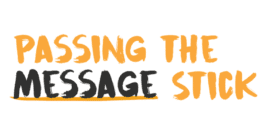A year ahead for government engagement

19 January 2022 at 4:26 pm
Neil Pharaoh dives into the certainties, predictions and guesses for what will happen for government engagement in 2022.
The festive season and New Year’s period is usually a time to stop, catch up with family and friends, hit refresh, and maybe head to the beach. The days blur into one and, by the end of January, we are ready to get the kids back to school and kick off the year ahead. Sadly, 2022 is not to be one of these normal years.
Like many over the past few weeks, I was caught in isolation for a wee while, struggled to get rapid antigen (RAT) tests, waited over a week for a PCR test, all the while supermarkets gradually emptied of all sorts of things.
I did not get to see a beach, and barely saw the family (as travel was all a bit iffy) – so join the club if you are feeling not quite as refreshed as normal.
The New Year’s period may be a bit like government engagement in 2022, where less is certain, more is painful and a heap is variable – so let’s step through what we know.
Certainties for 2022
South Australia will be going to the polls very shortly, and while hints of corruption, nepotism, and a variety of generally dodgy behaviour has hardly covered the current state government in glory – it seems few are paying much attention to what will happen in SA, and even less actually seem interested or concerned about the result.
Victoria will go to the polls in November, New South Wales follows in March 2023. The wonderful thing about fixed terms is that everyone knows when the election will happen, and with our two biggest states having elections in the coming year or so, being attentive to the cut and thrust of Victoria and NSW will be critical moving forward.
While WA likes to pretend it isn’t part of the Commonwealth, NSW and VIC carry large sway around social, economic and political direction and policy. So, even for organisations not based in VIC or NSW, it is quite important to be attentive to discussions and policy which crops up.
We will have a Federal election. While this is increasingly firming around 14 or 21 May, we may still have some outlier chances of our dear PM doing something exceptionally creative. While we haven’t split the Senate and House of Representatives elections for a few decades, in this cycle, only the Senate is due before the end of June, the House election isn’t required until closer to September – so if things look dire, a Senate election in May and a House election in September could still be (albeit unlikely) in order.
So, what does this mean for us? We will have lots of caretaker periods due to the election cycle – having a plan for the caretaker period (focused more on public service) as well as the first 100 days of government (new or returning) should both be key documents that are completed by the end of January, ready to whip out when needed, however, the die is cast.
It is almost too late now to engage on Federal advocacy for the election, so if you still want to play this card, February is starting to be the end of the road and by March you should already be looking ahead at potential election options and post-election activities.
Probabilities for 2022
Governments will continue to be woefully unprepared and incredibly short-sighted. Almost two years ago we were told initially we needed to lock down to get everyone ready for the Covid wave. What played out showed that while we delayed the Covid wave, neither State nor Federal governments actually seemed to think ahead – whether hospital capacity and planning (Code Brown now in Victoria and similar in NSW), testing (where PCR results come in after you are free from iso and no RAT tests to be found) or economics – in almost all governments in Australia our exceedingly short-sighted political leaders have been more interested in the advertising and messaging spin, than the actual outcomes.
Case in point, according to the paper, and a Federal government ad, I am able to get RAT tests (if I am a close contact) from a testing site – lived experience says otherwise.
Critical labour and supply chains will be broken potentially for the entire year and government does not know how to fix it. This will impact all of us, from food shortages to specialised equipment, from building to team members, we will need quite extensive contingency plans for almost every part of our life well into 2022 – and if the futures market is telling you something else, the price of almost everything will be going up shortly.
Governments and politicians will ramp up the deflection game. Whether via a press conference or in response to letters and emails, if 2021 was the year of excuses, 2022 is going to be even worse. This has almost got to a point of lunacy, whether it is 100 days of press conferences where the questions from journalists are never actually answered, or the regular shifting of blame between the Feds and the States – expect more in 2022.
With fewer and fewer political leaders who have any experience in anything outside of just politics, expect even shorter attention spans, policy decisions and outcomes for 2022.
Start to advocate early for funding rises and contracts, check contracts and clauses for options to pass costs on and engage earlier with supplier negotiations. Both labour issues, from sickness, and supply issues will have impacts on every for-purpose organisation, and thinking ahead will be needed on all counts.
I have been struggling to work out how we can all work through the deflection game in politics.
Outside of work, where I live had 14 power outages last year, from 20 minutes to 4 days. When the power goes down, we lose water (as the booster pumping station doesn’t work), internet (no NBN works without power), as well as mobile phone reception (despite being 2km from a major highway and less than 25 minutes from the outskirts of Melbourne in a town of 6000 people).
The two years of blame games between the States and the Feds on everything from who is responsible for mobile phone black spots, to who is to blame for power outages, drives even someone experienced in advocacy like me crazy. If MPs spent as much time actually working on solutions, as they do drafting well-written letters or making speeches blaming others, would we be in a better position? With our PM bringing deflection to a whole new level, what do we as civil society need to do to prevent this? Who knows – but in short, I suspect this will continue to increase in 2022.
As always when it comes to January, if there are any topics you are keen for me to dive into, or areas of focus in 2022, please shoot me through an email. I am looking forward to a very exciting 2022 for Happenings on the Hill!
About the author: Neil Pharaoh has spent most of his voluntary and professional life in and around social purpose organisations, government, public policy and advocacy. Neil has been behind many leading social policy and advocacy campaigns on gender rights, equality, medical research and education, and ran for Parliament in Victoria in 2014 and 2018. Neil is co-founder and Director of Tanck, which focuses on better engagement with government, and regularly runs workshops and advocacy sessions and advises leading social purpose organisations on their government engagement strategy and systems. Follow @neilpharaoh on LinkedIn, Twitter, Facebook and Instagram.
Happenings on the Hill is a fortnightly column focusing on all things politics, policy, campaigns and advocacy. Stay tuned for updates around political trends and elections, lobbying and advocacy news, and hints, tips and ideas on government engagement that are specifically written for the social purpose/for purpose sector.
If you have any ideas, suggestions, tips or questions, please feel free to email Neil Pharaoh at neil@tanck.com.au or reach out to him via Tanck social media: @tanckconsulting on LinkedIn, Twitter, Facebook and Instagram.







